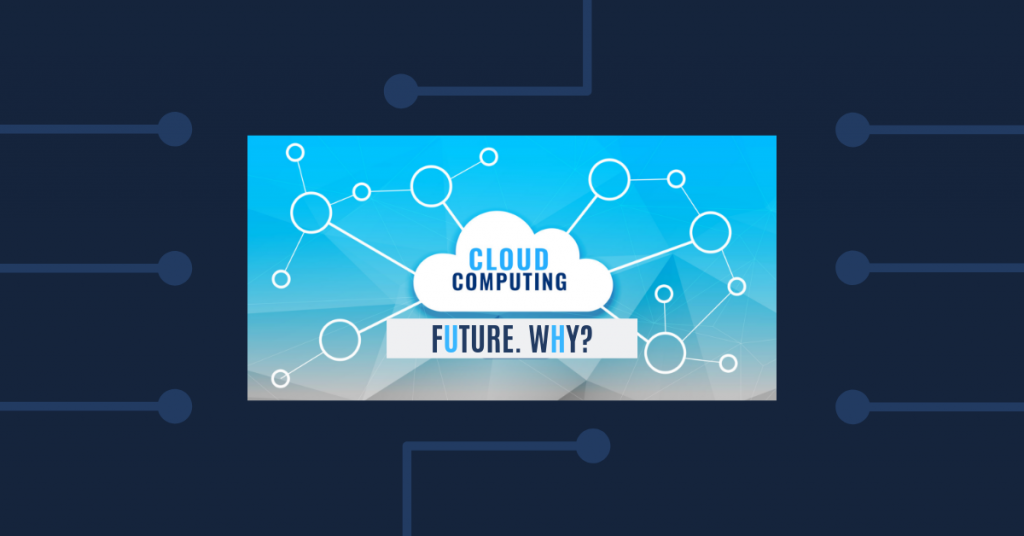Cloud Computing – Pros & Cons
Cloud computing is the latest buzzword in the industry nowadays. If you want to survive in the digital world or provide digital services of any kind, you will have to step up your game and start using cloud services. But first, you need to understand the advantages and disadvantages of cloud computing and how to overcome the disadvantages. While it’s definitely not something that you should rush into without prepping for it. In this article, we will discuss the advantages and disadvantages of cloud computing along with some best practices.
Cloud computing allows organizations to manage their data in a more cost-effective and efficient manner. This has led many to move on to the Cloud, and it is quite the trend in the tech world. With more and more organizations adapting to and adopting cloud services and tools, experts are of the view that very soon Cloud computing will replace the traditional enterprise application platforms.
What is Cloud Computing?
Cloud computing can be defined as a technology that stores, manages and processes a bulk load of data on remote servers. There is no use of physical drives or local servers.
While using cloud computing to store and manage data comes with its own set of advantages. With the collating, quantifying and processing of the data well taken care of, managing the business becomes easier. That is why organizations are switching over to cloud computing.
Let’s get into the pros of cloud computing:
Cost-Effective
The key benefit of Cloud computing is that it helps in cost-cutting. There is no need to spend money on building and maintenance of infrastructure for managing Big Data. The cloud space needs to be bought from service providers or vendors. So, all data-related maintenance, back-ups, and disaster management are taken care of. It gives you ample time to focus on the core business and saves you money that otherwise would have been spent on skills and resources.
Provides Flexibility
Cloud computing gives you sufficient room to adjust and adapt to fulfill your purpose in case it changes with time. It helps you to utilize your resources in the right manner. You can optimize your resources as per your need.
Better Accessibility
Unlike the old methods, Cloud technology allows you to access data from any place at any time from any device. It definitely improves operations and data analytics.
More Integration
Integration is another contributing side of cloud computing. Assimilation of new data sources and managing huge volumes of data becomes very easy. There is no shortage of storage which comes as a boon when you want to keep up with the increase in your data.
With cloud computing, anyone can enjoy the benefits of Big Data infrastructure without having to build or maintain an on-premise Big Data infrastructure that demands skilled resources and a significant amount of money.
Availing cloud technology allows organizations to pay for the resources that they need at that time. As soon as the purpose is fulfilled you can drop the extra load just like that. Everything happens quicker when you are working in the cloud. Even the expansion of data platforms takes significantly less time.
Cons of Cloud Computing
Downtime can happen anytime
So when it comes to the advantages and disadvantages of cloud computing, downtime is at the top of the list for most businesses.
Since cloud computing systems are all internet-based, there is no way to avoid downtime and it can happen anytime. Moreover, without internet connectivity, you will not be able to access the data, software, or applications on the cloud. Major downtime can lead to customer dissatisfaction and data failure.
Issues with migration
If due to any reason the organization plans to shift or change vendors then it becomes a problem as disengaging with one vendor and moving to the other is a big task and there is a possibility of data loss if not done properly. . The applications that work fine with one platform may not be compatible with another and the transition might pose a risk and the change could be irreversible due to synchronization and support issues.
Other concerns related to administration and data security are also deterrent factors that prevent organizations from shifting to cloud technology. However, that should be the least of the concerns for anyone as the majority of the cloud vendors provide cloud platforms that endure total security to data and other company information.
Conclusion
After considering both the advantages and shortcomings of cloud computing, it cannot be denied that the positives do outweigh the negatives. The trend of shifting data to the cloud will gradually make all the older methods go obsolete. The benefits of cloud computing are hard to ignore and the evidence is clear in its rising popularity. One can very well say that Cloud computing is the future.
If you want to know more details about how you can use your data better, reach out to GoodWorkLabs!















